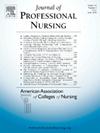Education and development as factors inspiring nursing leaders: A qualitative study
IF 2.9
3区 医学
Q1 NURSING
引用次数: 0
Abstract
Background
Nursing leadership plays a crucial role in advancing healthcare, yet young nurses and nursing students face barriers to pursuing leadership roles, such as resource constraints and personal challenges.
Purpose
This study aimed to explore the perceptions of young nurses and nursing students regarding factors that influence their willingness to pursue leadership roles in nursing.
Methods
Qualitative descriptive exploratory design with interviews. Qualitative research was conducted from April to July 2022. Semi-structured interviews were held with 21 participants (15 nurses with less than 10 years of experience and six nursing students), all born between 1980 and 2002. Data were analyzed using an inductive methodology.
Results
Participants identified advanced nursing certificates, postgraduate degrees, workshops, and hands-on projects as key to leadership development. While they distinguished leadership from management, overlapping competencies were noted in vision and change orientation. Barriers included organizational resource limitations and personal challenges, particularly for women balancing family and career. Structured leadership programs and mentorship were emphasized as critical support mechanisms.
Conclusions
Young nurses and nursing students value leadership roles and believe that empowerment, goal-setting, and practical involvement can cultivate leadership skills. These findings can guide managers and policymakers in developing programs to support leadership aspirations and career advancement in nursing.
教育和发展作为激励护理领导者的因素:一项定性研究
护理领导在促进医疗保健方面发挥着至关重要的作用,然而年轻护士和护理学生在追求领导角色方面面临着障碍,例如资源限制和个人挑战。目的本研究旨在探讨年轻护士和护生对影响其在护理工作中担任领导角色意愿的因素的认知。方法采用访谈法进行定性描述性探索性设计。定性研究于2022年4月至7月进行。对21名参与者(15名经验不足10年的护士和6名护理专业学生)进行了半结构化访谈,所有参与者出生于1980年至2002年之间。数据是用归纳方法分析的。结果参与者认为高级护理证书、研究生学位、研讨会和实践项目是领导力发展的关键。虽然他们区分了领导和管理,但在愿景和变革方向上注意到重叠的能力。障碍包括组织资源限制和个人挑战,特别是妇女在平衡家庭和事业方面的挑战。结构化的领导力项目和指导被强调为关键的支持机制。结论年轻护士和护生重视领导角色,认为授权、目标设定和实践参与可以培养领导技能。这些发现可以指导管理者和政策制定者制定计划,以支持护理领域的领导抱负和职业发展。
本文章由计算机程序翻译,如有差异,请以英文原文为准。
求助全文
约1分钟内获得全文
求助全文
来源期刊
CiteScore
4.80
自引率
8.00%
发文量
153
审稿时长
52 days
期刊介绍:
The Journal will accept articles that focus on baccalaureate and higher degree nursing education, educational research, policy related to education, and education and practice partnerships. Reports of original work, research, reviews, insightful descriptions, and policy papers focusing on baccalaureate and graduate nursing education will be published.

 求助内容:
求助内容: 应助结果提醒方式:
应助结果提醒方式:


